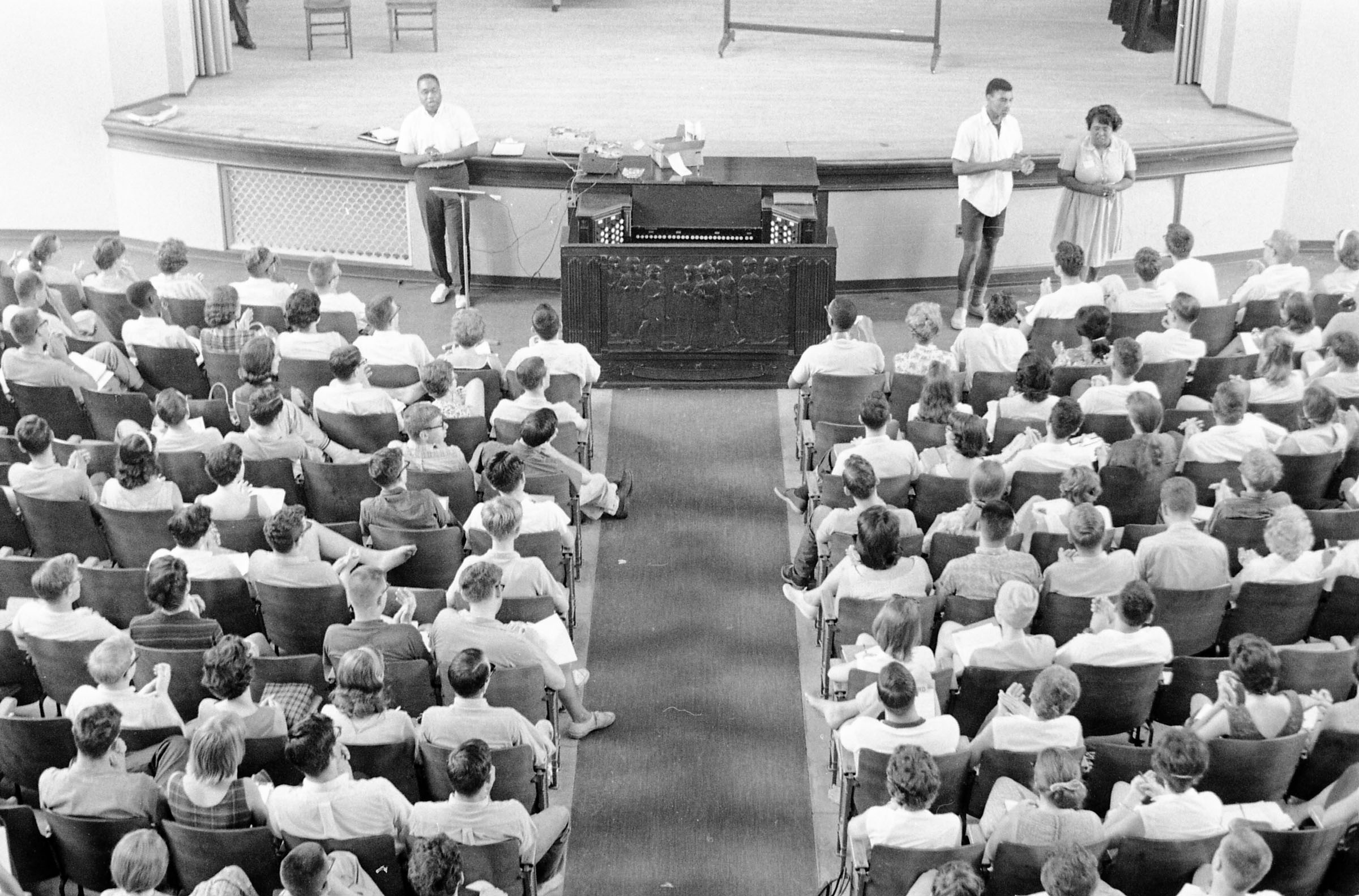Charles Neblett
February 27, 1941 –
Raised in Tennessee & Illinois
Charles “Chuck” Neblett’s songs of protest resounded in southern jails, SNCC meetings, and freedom marches. As a child in rural Tennessee, Neblett remembered walking to his one room schoolhouse and being sickened by the “fancy white school that was two stories tall.” His teachers motivated him, telling him, “You’re Black, but you can make it. The one thing they can’t take from you is what’s in your head.”
On September 23, 1955, the murderers of Emmett Till were acquitted, and “it told me that I didn’t count in this country,” remembered Neblett. A little over two months later, the Montgomery Bus Boycott triggered something inside of him: “When I saw those Black men and women standing up to the system, it’s like I got religion.”
Neblett attended school with white students for the first time at Southern Illinois University in Carbondale. While white students were offered on-campus rooms, Black students were forced to rent in all-Black neighborhoods, often far from campus. Neblett organized a group of students and wrote a scandal sheet about the president to force him into action. “We had stuff you would not believe … just to raise some hell,” he remembered. When campus police took the students into the president’s office, the president brokered a deal with them. If they stopped spreading rumors about him, he would address the policy the following semester. Neblett described their victory: “He did it. He had all housing for all students handled through the university. We desegregated housing on campus.”
In 1960, Neblett went to Cairo, Illinois to join the growing sit-in movement in that city. Jailed in Cairo five times for protest activity, he and his fellow inmates kept their spirits up with song. He remembered, “We would always sing, pray, and sing, guys playing the drums, playing trumpet.” While in Cairo, SNCC’s Executive Secretary, James Forman, asked Neblett to come South. He went to Albany, Georgia where he helped form SNCC’s Freedom Singers in 1962.
As a field secretary, Neblett went to Greenwood, Mississippi in 1963 after the shooting of SNCC worker Jimmy Travis and saw “things [he] had never seen before…people on plantations, people in cotton fields.” With SNCC, Neblett organized these workers, encouraging them to try and register to vote even if they knew they would be turned away.

Chuck Neblett (second from the right near the stage) sings freedom songs at the orientation for Freedom Summer volunteers, June 1964, USM
But it was with the Freedom Singers that Neblett found his true voice in SNCC. Inspired by the Fisk singers of Fisk University, Cordell Reagon decided to put together a group of singers who could inspire, educate, and call people to action. The Freedom Singers performed songs that had come “out of jails, picket lines, churches, marches and pulling bodies out of rivers,” Neblett explained. Harry Belafonte was a major supporter and source of inspiration for the Freedom Singers, who changed the lyrics of his song “Banana Boat Song” from “daylight come and we wan’ go home” to “freedom come and we wan’ go home.” They performed throughout the North at colleges and demonstrations, sharing songs like “Ain’t Gonna Let Nobody Turn Me Around” and “We Shall Overcome” to raise awareness and funds for southern organizing efforts. Their music was “like a newspaper,” bringing news of local southern struggles across the country.
The Freedom Singers continued to perform after the 1960s to teach SNCC’s history and the history of the broader movement for civil rights. Charles Neblett kept the group together, maintaining his role as “song leader” and the tradition of protest songs. Neblett and The Freedom Singers performed at the White House for President Obama in 2011 for “A Celebration of Music from the Civil Rights Movement.” “The battle of racism is just as prevalent now as it’s always been,” Neblett argued about the present day. He continued to live out SNCC’s vision of power through local politics and was the first elected Black magistrate in Logan County, Kentucky.
Sources
Our Voices: Song & Music, featuring Candie Carawan, Bettie Mae Fikes, Worth Long, Charles Neblett, and Hollis Watkins, SNCC Digital Gateway.
Interview with Charles Neblett by Nieta Wigginton, June 17, 2013, Kentucky Civil Rights Hall of Fame Oral History Project, University of Kentucky Libraries.
Jabari Asim, “Charles Neblett, Fighting for Our Rights,” Washington Post, May 17, 2004.
Jim Turner, “Neblett a Special Guest at the White House,” Logan Journal, May 2010.
Rachel Hopkin, “Russellville’s Charles Neblett: Founding Member of the Freedom Singers,” WKU Public Radio, February 11, 2011.





